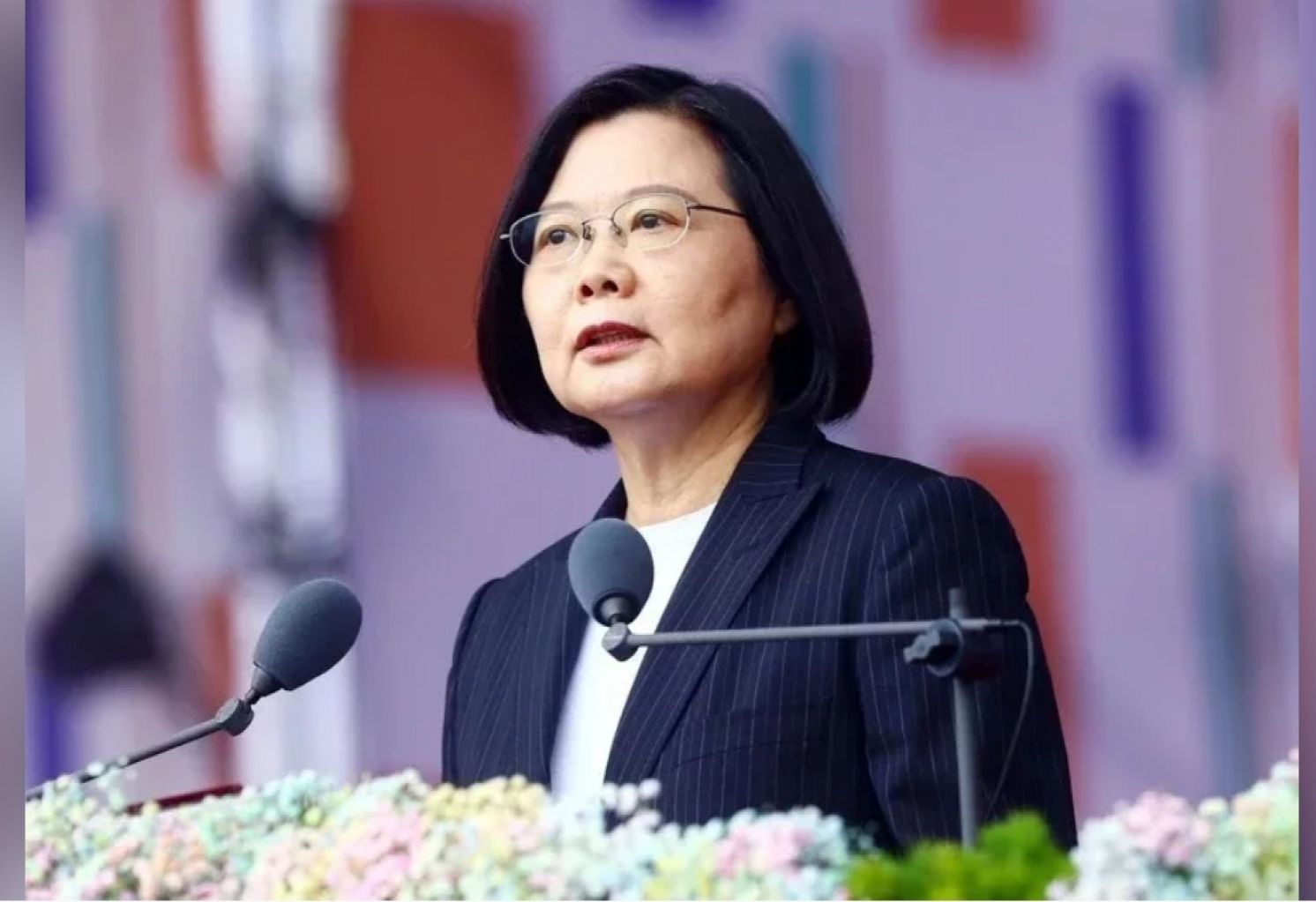
A Bleak Anniversary:Failed Epidemic Prevention, Justice, and Infrastructure Program
United Daily News Editorial, May 20, 2022
May 20 marked the sixth anniversary of President Tsai Ing-wen’s inauguration, while more than a million people in Taiwan confirmed with the coronavirus (COVID-19); the so-called “New Taiwan Model” of epidemic prevention collapsed, and the people suffering. Successes in epidemic prevention once gilded the Tsai administration, but the reality is that the ruling Democratic Progressive Party (DPP) has grown pompous and presumptuous. In recent years, President Tsai has been calling the shots with arrogance and concentrated power, but she has put national security, energy, food safety, and justice in predicament. With her failed epidemic prevention strategy, Forward-Looking Infrastructure Development Program, and social justice, will President Tsai try to rectify the errors in the two remaining years of her tenure?
The epidemic prevention measures of the Tsai administration have either been marked by “shortages” or “chaos” for more than two years. There was lack of face masks in the first year, followed by shortage of vaccines in the second year, and shortage of rapid test kits in the third year. People have to rely on themselves and many innocent lives have been lost. With such chaotic situations, the Tsai administration could still boast its “advance deployment and elevated status of Minister of Health and Welfare Chen Shih-chung as God-like commander of epidemic prevention. To sum up, the government had totally forgotten that its duty is to serve the people and solve their difficulties and problems. To observe the current situation, the health care system frequently is sounding the alarm, the local epidemic prevention personnel are extremely busy, people are waiting long time at the emergency stations and finally died, but the Central Epidemic Command Center (CECC) still monopolizes the power and acts in bureaucratic airs towards the hospitals and local governments. At the same time, many pro-government channels are rampant, the biddings for rapid test kits were spoils of friends of the government, so people feel more and more deprived.
President Tsai is the most powerful president in recent years, but she has not used the advantage of total governing to lead the change and reform Taiwan. To the contrary, President Tsai had led the country into partisanship and populism; the state power and resources have served the ruling party and democracy has fallen backwards. The term of the Transitional Justice Commission has been extended twice, it does not realize the goal of transitional justice or heal the historical wounds, but has become the instrument to tear up the society. Under President Tsai, many independent organs such as the National Communications Commission (NCC) and Taiwan Broadcasting System have become the vanguards of the party and government, and the pro-government media and cyber army manipulate the public opinion, so the public debate forum and dissidents’ voice have almost no standing space and the room of social rationality is also strangled.
In addition to the deterioration of political atmosphere, President Tsai’s pledged judicial reform also suffered from continuous political interferences and political appointments; ridiculous incidents damaging judicial independence occurred unceasingly, and justice is demolished. Moreover, the Control Yuan, which should monitor the ethics of governmental officials also muddled in the political waters by ruthlessly trampling the judiciary and prosecutorial powers and stepping out of bounds. What is worse, the Constitutional Court of the Judicial Yuan fails to act fairly to arbitrate the division of powers between the central and local governments. As a result, the control power, the legislative power, and the judicial power have all followed the direction of the ruling DPP and acted with bias and noise. President Tsai has failed to take the neutral role to correct the wrongs or to ask relevant branches of government to exercise restraint. Consequently, we see the prevalent abuse of power by governmental organs, resulting in the malfunction of constitutional checks and balances.
Under President Tsai’s monopolized power, the failure of the government cannot be corrected; to alleviate people’s anger, the government spent money or used subsidies to cover up its inability. In the past five to six years, the Forward-Looking Infrastructure Development Program, economic relief plan, defensive arm procurements, the triple and quintuple stimulus vouchers all used special budget to borrow money, and the total amount had exceeded NT$2 trillion (about US$67.6 billion), this is rare in previous administrations. The debts are left to future generations and the government’s fiscal condition will only worsen.
Because of the misplacements of national resources, many imminent national crises are ignored. For example, the crisis of declining birth rate and aging population is getting serious, labor insurance fund brinks on bankruptcy, and when the global energy prices are hiking, the domestic oil prices have been frozen. All these phenomena exposed the Tsai administration’s mentality of short-term speculation; it does not want to address the long-term challenges to the country but pretends that there are no problems. Using the problem of power sufficiency as an example, President Tsai may pretend that she is actively pushing for the transformation of energy sources until she leaves office safely, but can Taiwan maintain low electricity price at that time? More importantly, will Taiwan have sufficient electricity to support people’s livelihood and industries?
After President Tsai assumed office, the relationship across the Taiwan Strait went down quickly, mainland Chinese tourists stopped coming to Taiwan, many exchanges have gradually been suspended, and animosity between people across the Strait has deepened. At the same time, Taiwan’s trade continues to depend on the mainland, exceeding 42 percent of total trade. Is this kind of unbalanced cross-strait relationship—political rivalry and economical dependency—healthy and feasible for Taiwan’s development? Who wants to see Taiwan becomes the next Ukraine? President Tsai should think hard as her epidemic prevention strategy has lost its luster on the May 20 anniversary.